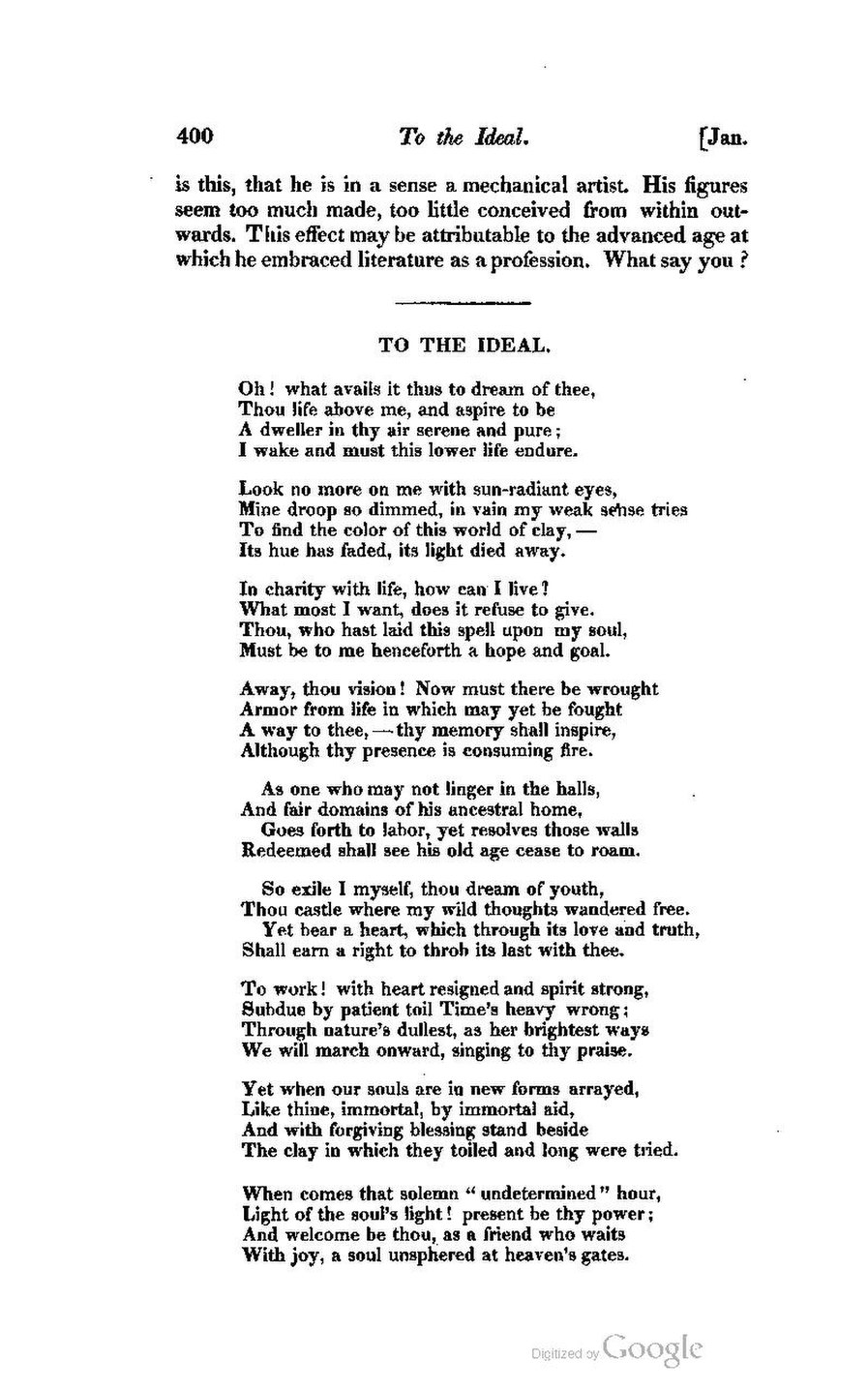408 Record cfthe Months. [Jam 1841.
third and concluding part of the sixth edition of Turner’s Chem- istry. Part Third.
The Autobiography of Archibald Hamilton Rowan, Esq., with Additions and Illustrations by W. Hamilton Drummond, D. D. 8vo. London.
The Life and Times of Saint Cyprian. By the Rev. George Aylifi'e Poole, M. A. 8vo. London.
Die Lehre vom christlichen Kultus, nach den Grundsitzen der evangelischen Kirche in wissenschlaftlichen Zusammenhange dargestellt von Karl Wilhelm Vetter. Berlin. 8vo.
Wilhelm Heinse’s simmtliche Schrihen. Herausgegeben von Heinrich Laube. Zehn Binde. Leipzig.
Grundsitze des Kirchenrechts der Katholischen und evangelis- chen Religionsparthei in Deutschlaud von Karl Freidrich Eich- horn.
Daub’s philosophische und theologische Vorlesungen, heraus- gegeben von Ph. Marheineke und Th. W. Dittenberger. Vierter Baud. System der theologischen Moral. Erster Theil.
The reputation of Daub, unlike that of most German theolo- gians, appears to be increasing since his death. He was a scholar of almost universal accomplishments, a deep and subtle thinker, especially on subjects connected with the philosophy of religion, and a singularly just and candid inquirer on problems of speculative science; but his style is so shaded with the obscurity which few of Hegel’s followers have escaped, that his works can hardly command a general interest, even in his own country. They form a curious study, however, and one not altogether with- out attractions to the theologian.
Die Kirchenverfassung nach Lehre und Recht der Protestant- ten. Von Dr. Freid. Tul. Stahl.
Lebensnachrichten fiber G. B. Niebiihr aus Briefen desselben und aus Errinnerungen einiger seiner nichsten Freunde. Drei Biude. Hamburg: Perthes.
This is a complete and very satisfactory biography of the cele- brated historian. Its interest is much enhanced by the addition of a copious selection from his correspondence.
Franz Passow’s Leben und Briel'e. Eingeleitet von Dr. Lud- wig Wachler. Breslaw.
Passow is worthy to be mentioned in company with Voss and Jacobs, as one of the most distinguished classical scholars of whom German literature can boast. His labors in Greek lexi- cography give him a conspicuous place in the history of philology. His personal character presents great attractions for the contem- plation of the literary man; and we rejoice that he has found a biographer to do justice to his memory, with so much truth and beauty as characterize the present work.
